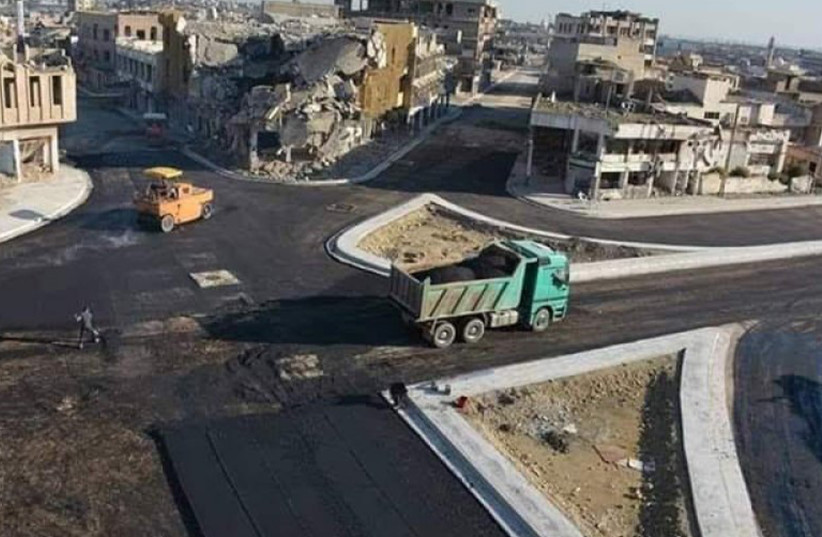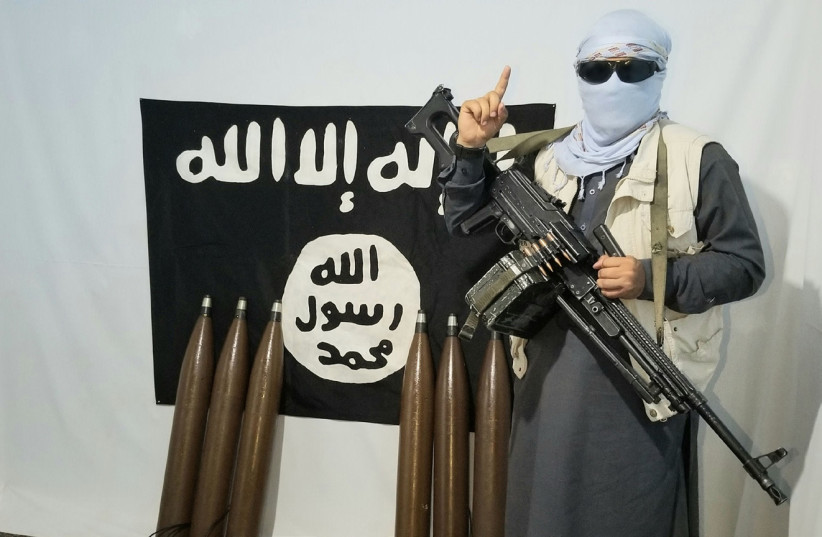Six years after ISIS, what’s next for Iraq’s Mosul – analysis
Mosul has been reconstructed six years after the city was liberated from ISIS in 2017. The city was occupied by the extremist group from June 2014 until the summer of 2017. It is a large city with millions of inhabitants in the city and its environs. It sits on the Tigris river and is an important center of trade.
However, it has also been a major center of insurgency and extremism in the last decades. This was partly because of the city’s attachment to the previous Saddam regime, and the investment it received. Later it was known for opposition to the US occupation and then opposition to the Nouri al-Maliki regime.
On the one hand stakeholders in the city’s reconstruction believe the city is thriving. An article at Al-Monitor noted recently “since 2018, a host of global players have begun to rebuild Mosul, especially its famed monuments. Al-Nuri Mosque is being rebuilt under UNESCO’s ‘Revive the Spirit of Mosul’ project, which seeks to breathe new life into one of the world’s oldest cities.” Investment has come from a variety of sources, including the UAE and the Gulf.
Churches and ancient sites are being repaired. Some of these were targeted by ISIS. ISIS committed several genocides in Mosul, it expelled Christians, kidnapped and enslaved members of the Yazidi minority and targeted ancient ruins to erase the cultural history of Iraq.
In another recent article at The New Arab there is a discussion about the importance of coming to grips with what happened in Mosul. This is important because ISIS appeared to take the city quickly, in a lightning Blitzkrieg across Iraq in June 2014. Omar Mohammed, the activist and intellectual behind the Mosul Eye social media and website, spoke to the New Arab about the issues the city faces.

Conflict remains following liberation of the city
“According to him, after almost six years since the liberation of the city, there is not yet an agreed narrative of what happened on June 10, 2014…That day, in a matter of hours, Iraq’s second-largest city fell in the hands of a terrorist group, as it occurred later to around a third of the country’s territory, completely changing the lives of millions.” He said to the NewArab “not agreeing on what happened is dangerous because it opens the door to conflicting narratives. And too many times in Iraq we have seen that the winners’ versions have prevailed…Often erasing the losers’ ones and ignoring people’s stories.”
In another article about the city the First Lady of Iraq Shanaz Ibrahim Ahmed wrote for CNN about the city. She is a Kurdish Iraqi politician and member of the Patriotic Union of Kurdistan Party. In Iraq the President of the country is Kurdish while the Prime Minister is usually an Arab in the last 20 years. Kurds are a minority in Iraq and have an autonomous region. The PUK is one of the two major parties of the Kurdistan region.
It’s worth recalling that back in June 2014 when ISIS waltzed into Mosul there was a debate in the Kurdistan region about what to do. Many Kurds were also non-plussed by Maliki’s authoritarian rule. Maliki had risen to power in part with western support, a Shi’ite strongman who was supposed to somehow help Iraq after the US left. Instead he brought ruin on the country and empowered Iran and extremists. ISIS kicked open a rotten door when it invaded in 2014, because Maliki had hollowed out the country.
While Kurds were generally displeased with Maliki’s misrule in 2014, there were questions of what ISIS might do next. Some believed it would march on Baghdad. Instead it expelled Christians, committed genocide against Shi’ites at Camp Speicher and then attacked Sinjar, committing genocide against Yazidis and sending millions of displaced people into the Kurdistan region.
The PUK has maintained that they wanted to strike at ISIS before ISIS attacked the KRG. Instead in early August ISIS began a massive offensive striking at Sinjar, Mosul Dam and Makhmour, aiming to conquer the Kurdish region. Kurdish Peshmerga, backed by US airstrikes, support from a variety of sources, including Iran and staunch resistance stopped the ISIS onslaught. It took three more years to liberate Mosul.
Shanaz Ibrahim Ahmed wrote for CNN that when she heard of the fall of Mosul, “my strength collapsed like the collapse of the Prophet Yunus Mosque. I was then outside the country and they told me that one of our friends had been martyred in that relentless campaign, and until now, the horrific scenes of the eternal barbaric destruction of historical monuments that were broadcast by satellite channels do not leave me.”
She writes about the dangerous of extremism and how massive amounts of money have been squandered since 2003. “The vacuum that became a typical incubator for ISIS ideology in Iraq was embodied in the division that arose from the 2003 conflict, when the chaotic war left a void that the vulnerable and marginalized saw as a glimmer of hope that might enable them to participate in social and political life through ISIS.”
 An ISIS fighter poses in front of an Islamic State flag (credit: Wikimedia Commons)
An ISIS fighter poses in front of an Islamic State flag (credit: Wikimedia Commons)She writes about what Iraq must do now to help rebuilt. “Work must also be done to return all the displaced to their lands and homes. We also urge the International Coalition to continue providing support, with the aim of enabling us to build and rebuild infrastructure, and we also appeal to it to help us fight the ideology of terrorism and extremism.” She discusses the need for supporting civil society and health care and education. She also advocates an “inclusive political document that guarantees contemporary civil life in all its cultural, economic, and political aspects” and encourages the international community to do more.
The rehabilitation of Mosul is important. However, the larger story is in the areas around Mosul. Yazidis who suffered genocide also deserve investment in Sinjar. In many cases they have been abandoned and no one has helped them rebuild their communities or even build memorials for the thousands who were murdered by ISIS and the thousands who remain missing. Other areas around Mosul are a patchwork of Christian and other minorities such as Shebeks. All of these areas deserve support, but sometimes pro-Iranian militias have infiltrated areas such as Nineveh plains to the East of Mosul. This leads to instability and poverty.
Another issue is the environment. A water crisis has harmed Iraq and there is drought and hardship. Without attention to solving the water crisis and holding countries like Turkey to account, do to their controlling some of the flow of water to Syria and Iraq, the region will remain unsettled. In addition Ankara continues to carry out armed drone attacks in Iraq, which also causes insecurity.
Even though Ankara claims to be fighting “terrorists” its drones almost always target minorities in Iraq. Ankara’s actions even affect the functioning of airports in Erbil and Sulimaniyeh. Iraq wants to invest in the area of Mosul and build a new train line and do other agreements. It will be difficult to do this if Ankara and others are not responsible players. In addition Iraq continues to harass minorities, with the Chaldean Patriarch Sako, who has had to leave Baghdad recently.





Comments are closed.